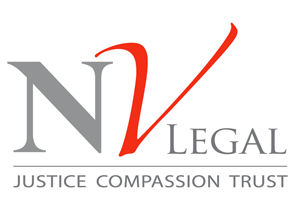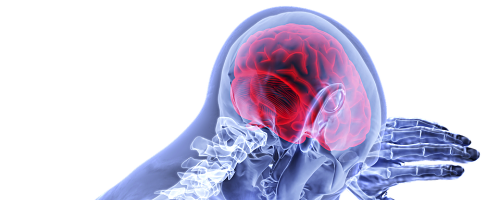Head Injuries – What you need to know
More than 1.4 million people visit A&E globally with a head injury every year often with devastating outcomes. Head injuries are most common in the under 25s and are the principal cause of death and disability in this age group.
They can affect the ability for someone to lead a normal life, look after themselves, and their family, their ability to work and make their own decisions which can be devastating not only for the injured person but for those around them.
There are two types of head injury. The medical education website TeachMe Surgery explains the difference between a head injury and traumatic brain injury (TBI) and how to assess an injury in young adults. It states:
“The terms head injury and traumatic brain injury (TBI) are sometimes used interchangeably but is important to identify the difference between them.
- Head Injury = a patient who has sustained any form of trauma to the head, regardless of whether they have any symptoms of neurological damage.
- Traumatic Brain Injury = evidence of damage to the brain as a result from trauma to the head, represented with a reduced Glasgow Coma Scale or presence of a focal neurological deficit.
“Head injury is classified as minimal, mild, moderate, or severe based on the patient’s Glasgow Coma Scale (GCS); mild head injury/TBI is also known as concussion.
Classification of Head Injury based on Glasgow Coma Scale:
Classification GCS ( / 15)
Minimal 15, with no loss of consciousness
Mild 13 – 15
Moderate 9 – 12
Severe 3 – 8
“Head injuries can also be described by any resulting pathology that is associated with the head injury, such as superficial lacerations or bruising, fractures (including linear, depressed, facial, basal skull fractures), haemorrhage outside the brain tissue (extradural/subdural/subarachnoid haemorrhage), haemorrhage within brain tissue (contusion/intra-cerebral haemorrhage), or diffuse axonal injury (DAI).”
Head injuries/TBI can be debilitating and have long-lasting implications for a person and their families.
What may be perceived to be a minor head injury can often result in brain damage which may or may not be seen on a scan. A subtle head injury may leave a person with significant on-going symptoms such as memory loss, impairment of cognitive function, loss of concentration, a change in personality and behaviour and symptoms of frustration and loss of confidence for example. Loss of hearing, loss of smell and taste, blurred vision and headaches are also common. Such head injuries can be seriously debilitating.
Cases involving someone who has suffered a minor head injury/TBI can be complicated because the symptoms can be similar to psychological problems. It is essential that, the correct investigations are carried out.
There may also be a risk of post-traumatic epilepsy and if this cannot be medically controlled it can have a dramatic impact on a person’s life. If you have a personal injury claim it is essential that you instruct a solicitor with expertise in this area as it is crucial to obtain the best expert evidence for your case.
CAUSES
Head injuries/TBI’s are caused in numerous ways and are often the result of road traffic accidents; falls from height; slips, trips or falls, sporting accidents or an assault. If you have been assaulted, you may be eligible to claim compensation from the Criminal Injuries Compensation Authority. We can assist you with that. CLICK HERE for a guide to applying.
SPORTING INJURIES
There is research to support the theory that some sporting-induced head injuries can lead to dementia or Alzheimer’s in later life. There have been some high-profile cases of boxers, professional footballers and rugby players being diagnosed with such conditions following a career which involved contact to the head.
According to Alzheimer’s Research UK: “We do know that one specific type of dementia has been associated with head injury, known as ‘chronic traumatic encephalopathy’ or CTE for short. First described in former boxers by Harrison Martland, an American pathologist, the earliest observations were of a combination of movement and thinking problems which he called the ‘punch drunk’ syndrome.
“It’s very unclear how common CTE is, as we can only reliably diagnose it by examining the brain after someone has died. CTE changes have been seen in a relatively small number of people typically following repeated injury, and very occasionally after a single severe hit.”
CHILDREN AND HEAD INJURIES
Children who have suffered a brain injury following an accident may be left with long-term damage. Our recent blog looks at head injuries in children and how parents can prepare a return to school with a child who has suffered a brain injury. Read it HERE
SYMPTOMS
Symptoms of a brain injury can often be confused with other conditions and can go undiagnosed. Some of the symptoms associated with a brain injury may include the following, the list is not exhaustive:-
Unconsciousness
Fits or seizures
Sickness
Blurred vision
Hearing loss
Loss of sense of smell and taste
Memory loss
Changes in personality
Headaches
With minor head injuries/TBI’s symptoms can often mirror other psychological issues. It is vital to obtain a clear picture from family and friends, teachers and colleagues of someone pre and post-accident.
ASSESSMENT & MEDICAL ATTENTION
It can be difficult to assess minor injuries, but it is extremely important to seek medical attention after a head injury. Early diagnosis and assessment is vital. Request a second opinion if you do not feel satisfied with the first outcome.
Minor head injuries can present minor symptoms however in some cases if left untreated can lead to more serious complications.
COMPENSATION
If the head injury was caused by the negligence of someone else, the injured person could claim compensation for their injuries. If liability is accepted and causation proved, compensation will also cover the cost of medical expenses, private healthcare, loss of income, travel expenses, care, case management and other out of pocket expenses caused by the injury.
The Judicial College Guidelines (JCG) outline the levels of compensation payable to personal injury claimants for the actual injury sustained. According to the guidelines:
Severe head injuries resulting in severe brain damage where there will be little, if any, evidence of meaningful response to environment can be awarded up to £379,100.
Injuries involving minor brain damage where a good recovery has been made but symptoms such as poor concentration and memory problems continue, can be awarded up to £40,410 and minor injuries involving no or minimal brain damage up to £11,980.
According to the JCG: “Awards principally reflect the severity of functional outcome. Cases involving birth brain injury resulting in severe cognitive and physical disabilities will often fall in the most serious category.
“Awards should reflect the nature and severity of symptoms rather than any diagnostic label.”
NV LEGAL
NV Legal has a specialist team of solicitors experienced in achieving successful outcomes for clients with head injuries. For further information on head injuries and personal injury compensation contact NV Legal for a FREE consultation:
Call – 03330 112732
Email – info@nvlegal.co.uk
Website – www.nvlegal.co.uk


